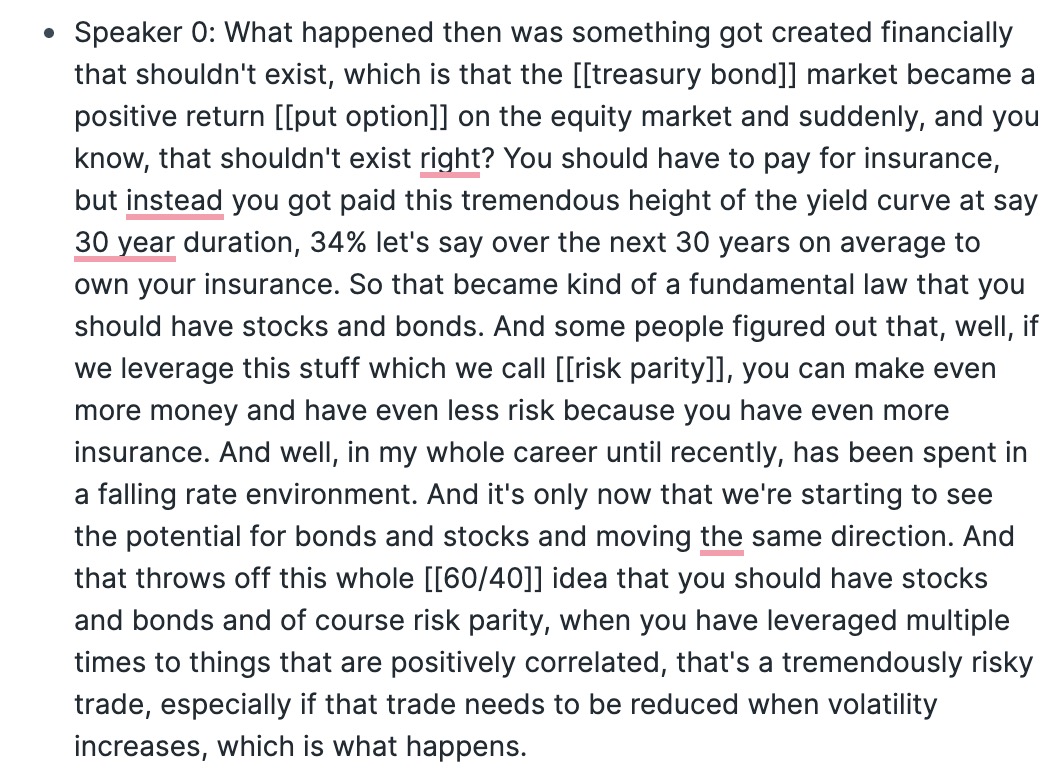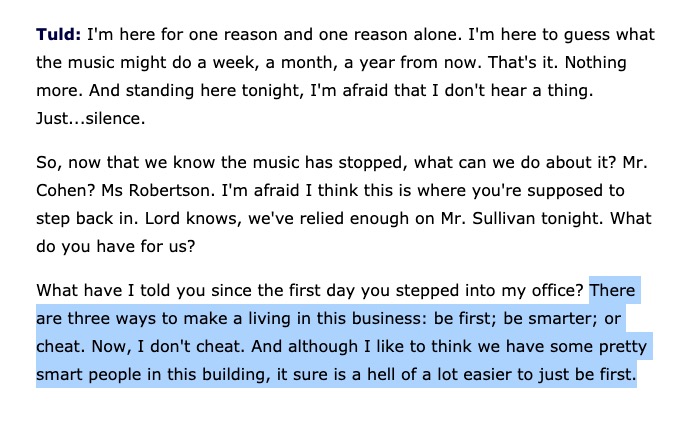
Great podcast from @AttainCap2 and @rcmAlts with Roy Niederhoffer.
They touch on
-Why US stocks looked so unattractive just before their largest bull run
-The danger of stock/bond correlation
-The Sharpe ratio of your fire insurance
podcasts.apple.com/us/podcast/mak…
They touch on
-Why US stocks looked so unattractive just before their largest bull run
-The danger of stock/bond correlation
-The Sharpe ratio of your fire insurance
podcasts.apple.com/us/podcast/mak…
"In 1983 when I had some money from my computer software business, I look back at Track Records and the stock market was completely unchanged in real terms for a dozen years.
And I just like why would anybody invest in the stock market? I want to be in the bond market."
And I just like why would anybody invest in the stock market? I want to be in the bond market."

"My whole career, until recently, has been spent in a falling rate environment. And it's only now that we're starting to see the potential for bonds and stocks and moving the same direction.
And that throws off this whole 60/40 idea that you should have stocks and bonds and...
And that throws off this whole 60/40 idea that you should have stocks and bonds and...
of course risk parity.
when you have leveraged multiple times to things that are positively correlated that's a tremendously risky trade, especially if that trade needs to be reduced when volatility increases
when you have leveraged multiple times to things that are positively correlated that's a tremendously risky trade, especially if that trade needs to be reduced when volatility increases

A lot of people are very comfortable with protective strategies in other parts of their lives such as fire insurance, let's say. So if you ask me, what's the Sharpe ratio of your fire insurance?
You know, you know, scratching like, oh, it looks like it's minus infinity...
You know, you know, scratching like, oh, it looks like it's minus infinity...
That's literally the worst investment you'll ever make in your life. For 96% of people or something like that, it will never pay out.
But everybody has it."
But everybody has it."

• • •
Missing some Tweet in this thread? You can try to
force a refresh



